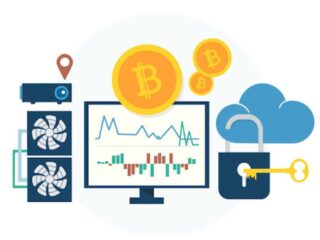
Over the past two decades, proxy services have continuously adapted to the ever-growing demands of the cyber-privacy industry. This has led to the creation of various forms of proxy servers to fulfill the deepest of demands. One such form is the 3G, 4G, and now 5G mobile proxies.
Unlike their counterparts, mobile proxies are not just a means to mask identity but a strategic asset that can significantly enhance online operations, from web scraping to social media management.
What are Mobile Proxies?
Mobile proxies serve as intermediaries between users and the internet. They assign a mobile IP address to user internet traffic originating from a device that is connected to a mobile network. This ensures that each person appears as a typical mobile user, blending seamlessly with the vast pool of genuine mobile internet goers.
The core functionality of mobile proxies revolves around their ability to provide enhanced anonymity and privacy. Routing user requests through real mobile devices or computers with SIM card readers connected to cellular networks masks the user’s original IP address. This process not only helps in hiding the user’s digital footprint but also significantly reduces the risk of IP-based blocking or tracking.
However, the full extent of functionalities made possible with mobile proxies exceeds maintaining security. We will discuss this in the next section.
Before we move on, it is worth mentioning that proxy services typically offer different types of mobile proxies according to the network generation: 3G, 4G, and 5G proxies.
The particular kind of network generation entails a certain connectivity speed ceiling. For instance, 4G proxies, along with 5G ones, are the fastest types of mobile proxies on the market.
How Do Mobile Proxies Compare to Other Types of Proxies?
On the proxy market, mobile proxies stand next to two more overarching categories of proxies: residential and datacenter proxies. Let’s compare them at a glance:
- Residential Proxies conceal IP addresses using ones provided by Internet Service Providers (ISPs) to homeowners. They are associated with a physical location and are considered more legitimate and less likely to be blocked than data center proxies. However, because of their setup, residential proxies are more expensive than data center proxies.
- Datacenter Proxies come from servers housed in data centers. They offer no affiliation with ISPs and are known for their speed and efficiency, but they’re more easily identifiable and thus more prone to being blacklisted by websites and services.
- Mobile proxies are somewhat closer to residential proxies by their nature. To the internet, they appear to be more legitimate than data center proxies because their IP addresses are allocated from a cellular network rather than a data center network.
Advantages of 4G Mobile Proxies
4G Mobile proxies possess several key benefits that are useful to individuals and enterprises alike. Whether it is improved security or a tool for smoother data harvesting, mobile proxies excel in these aspects:
- Improved Anonymity and Privacy: Mobile proxies tend to be provided with the rotating IP feature, offering superior anonymity by switching between different mobile IP addresses. This rotation makes it difficult for websites to track or block users based on their IP address.
- Decreased detection: Even without proxy use, cellular-assigned IPs are almost always used by hundreds of users simultaneously. Therefore, the multi-use of mobile proxies goes under the radar more often than other types of proxies can. This is particularly beneficial for tasks like web scraping, where an IP with a suspicious behavioral pattern might quickly get blocked.

- High-Speed Connectivity: With 4G proxies, users can enjoy high-speed internet connectivity while staying anonymous, making them ideal for bandwidth-intensive tasks like streaming, downloading, and online gaming.
- Geographical Flexibility: Mobile proxies are typically set up in many locations, allowing users to bypass geo-restrictions and avoid internet censorship. These proxies can unlock favorite streaming series from abroad, game regions, and even better prices in online stores.
- Better Data Harvesting Accuracy: For businesses and individuals involved in data collection, mobile proxies can significantly reduce the likelihood of being served CAPTCHAs. Moreover, data-driven marketers can connect to different locations for analyses of local campaigns.
- Social Media Management: Mobile proxies are invaluable for managing multiple social media accounts without triggering security algorithms that typically block or flag accounts accessing the service from the same IP.
How Do You Decide On A Mobile Proxy Service?
As with any product, choosing a mobile proxy will require some time invested into researching the best, most reputable industry-leading proxy service. For this matter, we recommend cross-searching through different tech news outlets to form the most wholesome picture. Apart from following our articles, we recommend visiting TechCrunch, CyberNews, and Wired. These sources provide high-quality, reliable news on the latest developments in the proxy world and in various relevant tech fields.
Additionally, we recommend staying away from services that offer free 4G mobile proxies, as they often come with hidden risks such as poor security, unreliable connections, or the misuse of your data. These services might compromise your privacy and efficiency, undermining the very benefits that a reputable mobile proxy should provide
All in all, we hope that our article helped you understand what mobile proxies are and whether they fit your best interests.












